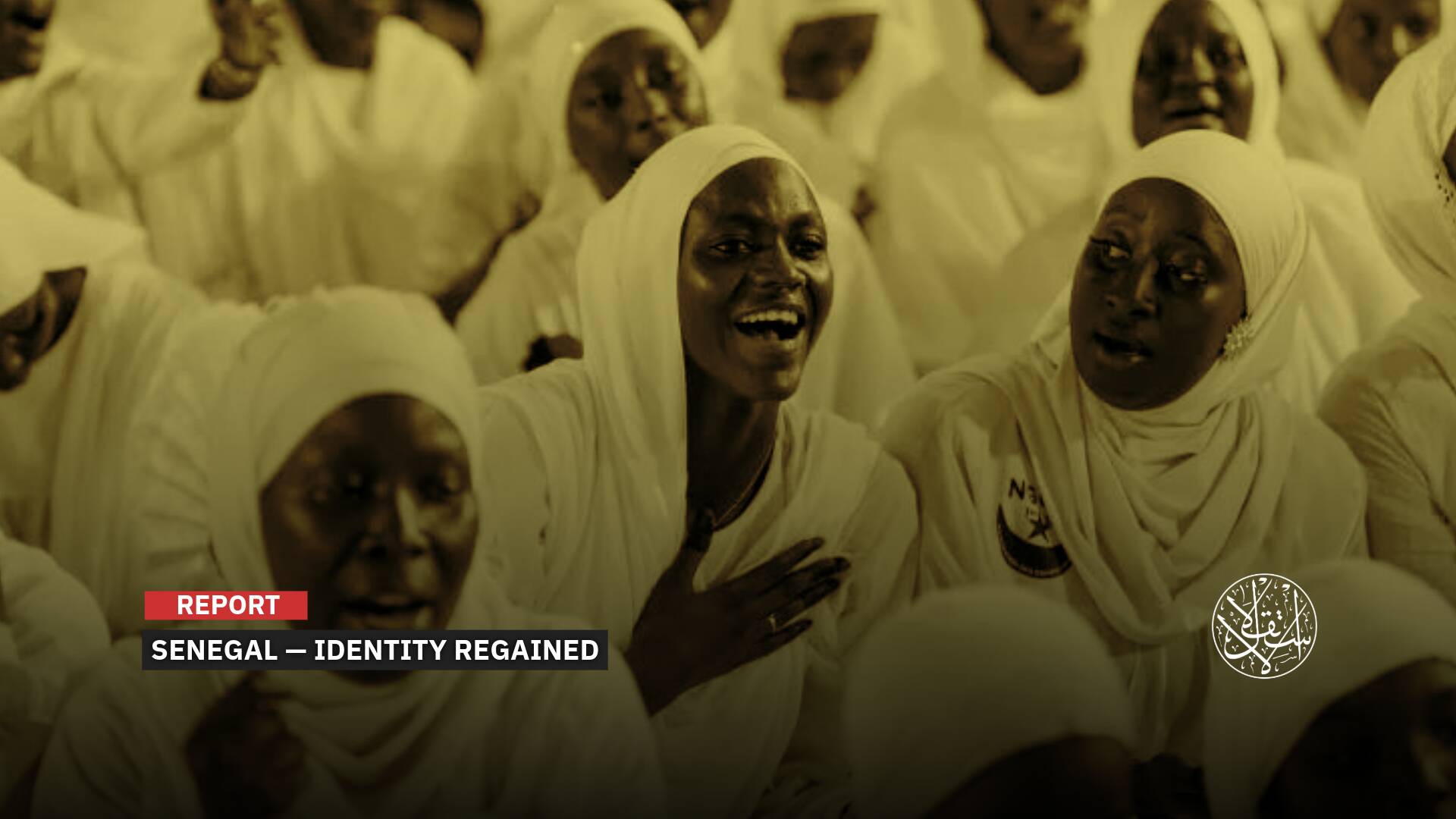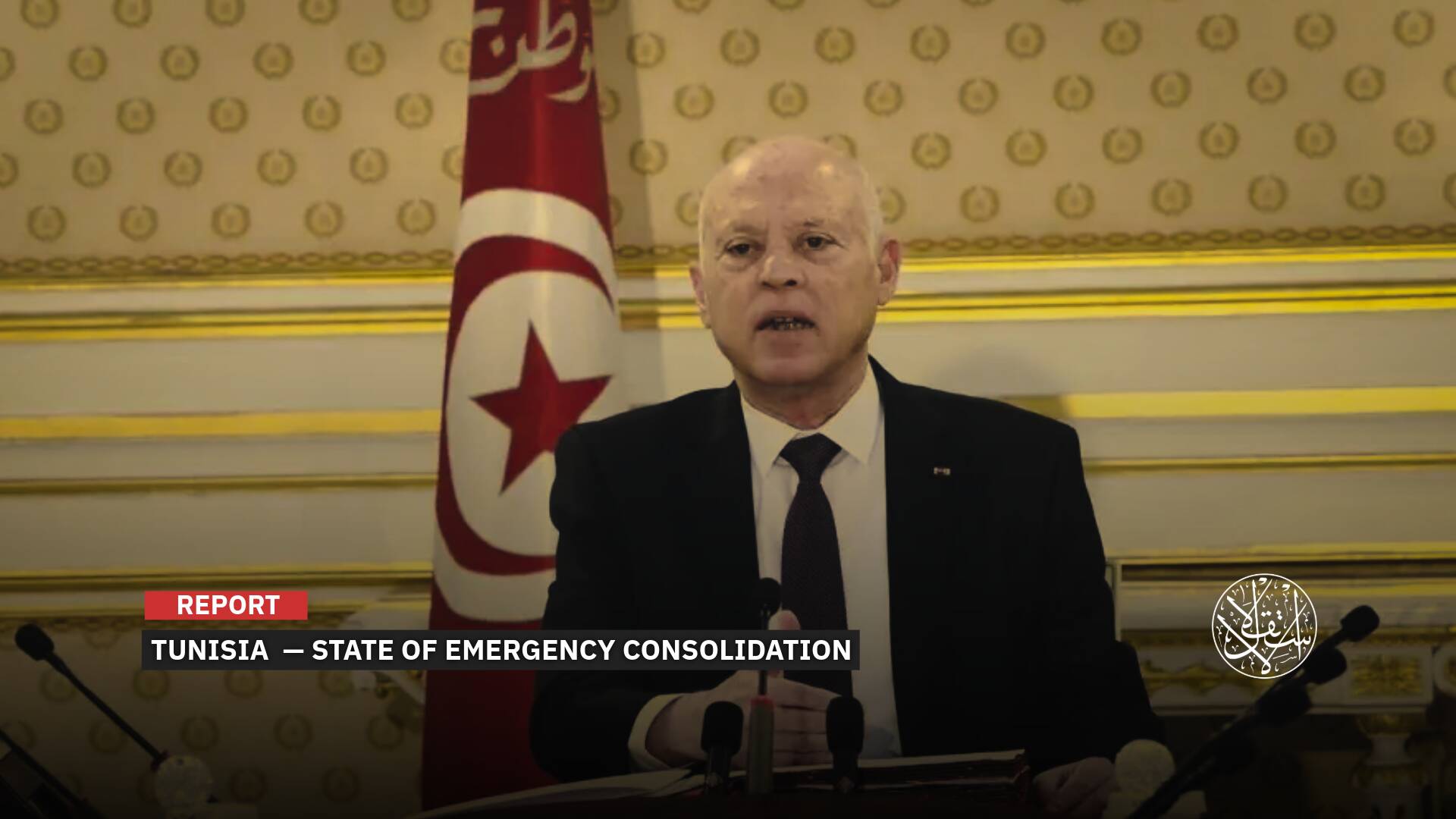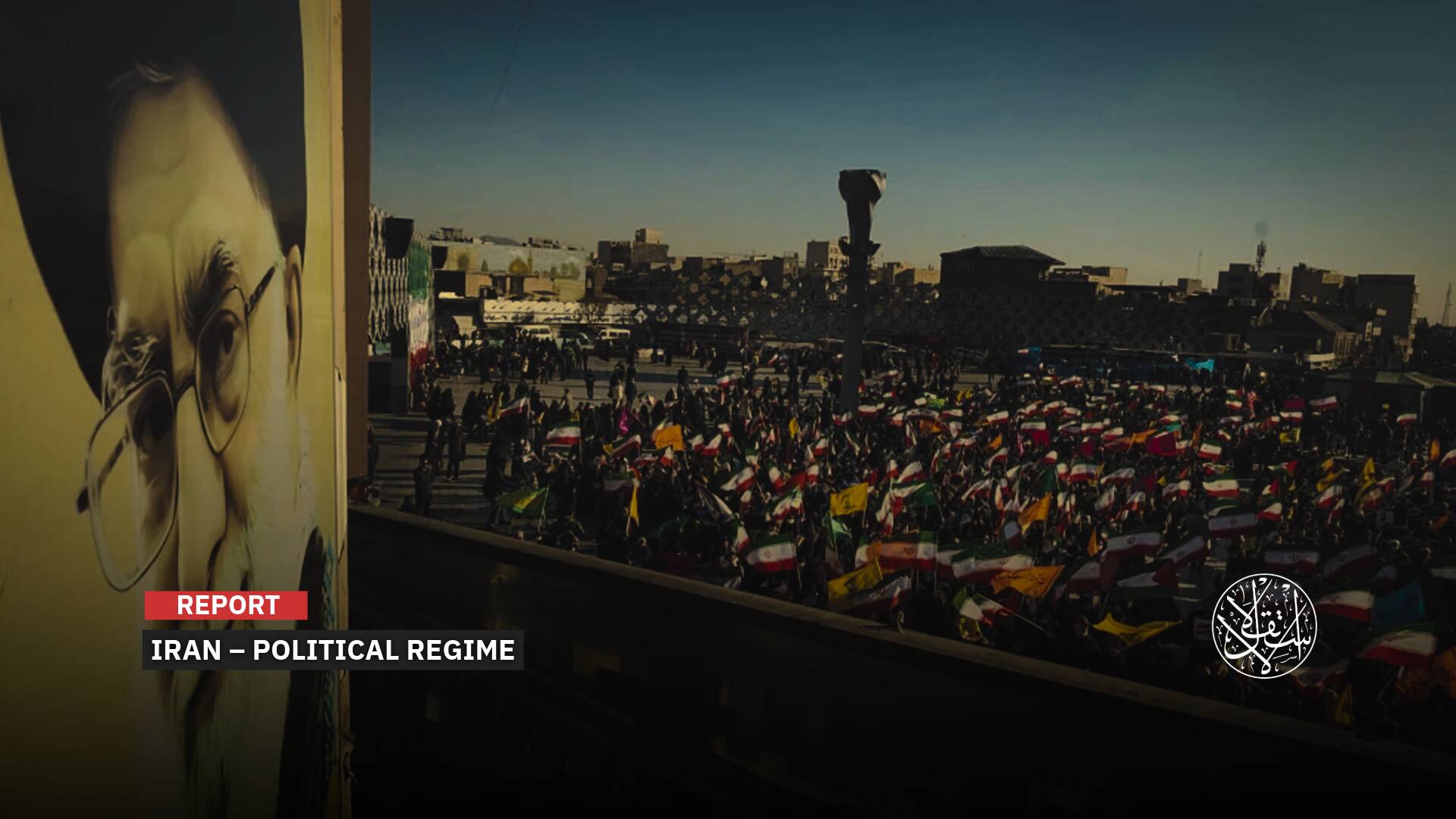What Is Behind the Appointment of an Extremist Settler at the Head of the Israeli Army?

For the first time in the history of the Israeli occupation, a settler residing in the illegal West Bank settlement of Kfar Ha-Oranim was appointed to the position of chief of staff of the Israeli army.
The appointment of Major General Herzi Halevi on October 23, 2022, who was born to an extremist religious Zionist family and is supported by the settlers' council, threatens and portends the transfer of power in the Zionist state to a generation more extremist than the current extremists.
The Associated Press said on October 24 that Halevi's assumption of the position is the culmination of the growing influence of settler groups, which have evolved from small numbers of religious ideologies into a diverse and influential force in "Israel."
The agency explained that this enormous political influence of the settlers has brought their members to the highest ranks in the government and the judiciary and to high positions in other major Israeli institutions, and they have now penetrated into all state positions.
The Religious Zionism party, led by Itamar Ben-Gvir, represents the most prominent spectrum of this recently-rising right-wing extremist settler movement (it is called the Religious Salvation Mainstream and aims to demolish al-Aqsa and build the alleged temple).
The settlers' enormous political influence threatens not only any hope of establishing an independent Palestinian state—or the so-called "democratic future of Israel"—but also turning the conflict with the Palestinians into a religious war between Judaism (the Salvation Mainstream) and Islam.
An Extremist Leads the Army
The Jewish settlers continued to form a second reserve army that supported the official Israeli army in occupying the West Bank and confronting the Palestinians.
However, this relationship between them is getting closer and stronger, especially after it was decided that an Israeli who lives in a settlement in the West Bank would occupy the position of chief of staff for the first time.
On October 23, the Israeli government officially approved the appointment of Maj. Gen. Herzi Halevi as the chief of staff of the Israeli army, succeeding Aviv Kohavi, whose term expires in early 2023.
The appointment of Halevi as chief of staff for a period of three years, starting from January 17, 2023, reveals the close interdependence between the settlers and the army as one.
This prompted Shabtay Bendet of the Peace Now, an anti-settlement organization, to criticize the Associated Press, "It is not surprising that we have reached a point where the chief of staff is also a settler."
The Hebrew media indicates that he lives in a settlement built on occupied land in the West Bank.
"Having a settler as chief of staff raises concerns that the military's conduct toward the Palestinians will worsen," said Diana Buttu, a Palestinian-Canadian lawyer and former spokesperson for the Palestine Liberation Organization.
Born just months after the 1967 Mideast war—when "Israel" occupied the West Bank—and was raised in Jerusalem (al-Quds), Maj. Gen. Halevi is a descendant of a rabbi seen as the father of the modern settler movement.
The new army chief lives in the settlement of Kfar Ha-Oranim, which straddles the invisible dividing line between "Israel" and the West Bank.
Several settler groups celebrated his appointment as the new army chief, while Israel Ganz, head of the Regional Settlement Council, which includes Kfar Ha-Oranim, said: "We are proud that the new chief of staff is a settler."

The Israeli army supports the presence of settlers in the West Bank and supervises their escort when they want to visit sensitive sites, go out for a march, protest or attack the Palestinians.
Since 1967, the settler population has grown to some 600,000 people, who live in more than 175 settlements and outposts in the West Bank.
The settlers, who live in settlements in the West Bank and Jerusalem, have attained important positions in various Israeli institutions, although earlier they did not enter the army for religious reasons, they are now leaders in it.
However, they created their own army to pursue the Palestinians, as confirmed by the Hebrew Channel 13 on September 21, 2022.
According to Israeli reports, the Supreme Court includes among its 15 judges, at least two settlers, and politicians who hold ministerial portfolios in the government, including Avigdor Lieberman, who previously served as Minister of Foreign Affairs, Defense, and Finance.
Settlers also held key positions in the institutions that plunder the land of Palestine and the land appropriation bodies.
On October 23, 2022, Israeli opposition leader Benjamin Netanyahu said that the head of the far-right Jewish Power party, Itamar Ben-Gvir, may become a minister in a government led by the Likud party, Hebrew i24news channel reported on October 23.
The settlers' ambition to rule "Israel" has gone so far as to say that the head of the Religious Zionism party, Bezalel Smotrich, would ask to take over the ministries of defense, foreign affairs, and finance if he joined a Likud-led government.
Recent Israeli opinion polls showed that the Religious Zionism party led by Ben-Gvir and Smotrich won the Knesset elections with 14 seats.
Right-wing settlers are increasingly supporting him at the expense of Netanyahu, according to Maariv and Israel Hayom newspapers, October 28, 2022.

Amos Harel, a military analyst for the newspaper Haaretz, said on October 28, "The presence of the extremist settler right in the government will have a security price that is not limited to the West Bank," in reference to their escalation of the conflict.
According to David Horovitz, editor-in-chief of The Times of Israel, "the November elections, which have already been launched, are a decisive moment for Israel because it will witness the rise of the settlers and their far-right party, which is determined to reshape governance and direction in Israel."
On October 18, Bezalel Smotrich revealed a program that he said was designed to heal the ailing Israeli justice system.
This program was intended to increase the penetration of extremists into the judiciary, so Horovitz described Smotrich's reforms as destroying the judiciary and allocating almost all power to the current political majority made up of settlers.
He said it would strip judges of the ability to repeal legislation they deem undemocratic and reconstitute the nine-member panel that selects Supreme Court judges, expanding the role of politicians to give the justice minister and the ruling coalition control.
Because polls suggest that this Zionist settler party will win about 14 seats (out of 120), which may make it the third largest party in the Knesset, Smotrich demanded that he obtain the position of Minister of Justice and Ben-Gvir for the position of Minister of the Interior.
This prompted current Prime Minister Yair Lapid to say on October 18: "If this gang [religious settlers] come to power, it will make every effort to destroy democracy, abolish the authority of the courts, and destroy the separation of powers."

Extremist Gangs
The settlers' terror originated in the West Bank and later took control of political life on April 12, 1968, when the first organized attack by them against the Palestinians occurred, when a group of them, led by the extremist Rabbi Moshe Levinger, stormed the Eternal River Hotel in the center of Hebron (al-Khalil) to celebrate the Jewish Passover.
At the time, Levinger refused to vacate the hotel owned by the Qawasma family and stayed in it with a group of heavily armed settlers, and this incident practically constituted the first foothold for settlement in Hebron and the southern West Bank.
After about 10 years of planting them in the center of old Hebron and controlling the hotel, and with the Likud party headed by Menachem Begin taking power in "Israel," the occupation granted facilities to settlers led by Levinger to control real estate and Palestinian properties on the city's famous Martyrs Street.
Begin's government also encouraged settlers to settle inside Hebron after taking control of the al-Deboya building in 1980, which the settlers called Beit Hadassah—adjacent to the Ibrahimi Mosque—and provided them with legal cover, and financial and security support.
The early eighties was a turning point in the organized terrorism led by the settlers, when the Jewish secret organization was revealed, whose nucleus originated from the settlement center in Hebron and whose membership was the son-in-law of Rabbi Levinger.
Later, with the settlers starting to form armed terrorist organizations to kill and displace Palestinians, such as the Gush Emunim movement and the Hilltop Youth, claims began to blow up the Dome of the Rock mosque in al-Aqsa Mosque to build the Jewish temple and expel the Arabs.
This was followed by programs to carry out comprehensive and widespread attacks and organized attacks on the Palestinians in the West Bank, the Jordan Valley, and Jerusalem in order to intimidate them and push them to emigrate and settle in their place.
The followers of these gangs, who planted the idea of outposts and pastoral settlement projects, believe in the so-called Greater Land of "Israel," and consider the Palestinians as intruders and must be expelled from the country to preserve the Judaism of the "Israel."
The Israeli authorities have sought to protect them by setting up their own legislation in the West Bank, which is renewed every 5 years, to treat them as Israeli civilians who have a special civil law instead of the military law applicable to Palestinians in the West Bank.
This law legalizes the settlers' occupation of the West Bank and gives them status as citizens of "Israel" and not outside it.
This is a matter that made there two separate judicial systems in the West Bank, one for the settlers and the other for the Palestinians in the occupied territories.
On June 6, 2022, the government coalition in "Israel" failed to extend the application of this Israeli civil law (the Judea and Samaria Law) to settlers in the occupied West Bank.
The dissolution of the Knesset on June 30, 2022, and the holding of new elections before extending the Civil Code would have disrupted its application and would have put settlers at risk of being subjected to Israeli military law like the Palestinians.
Also, not extending it would have prevented about 475,000 settlers from voting in the Knesset elections (which actually began in early November).
Therefore, the Likud linked its approval of the law to dissolve the Knesset and the extension of the regulations of the Judea and Samaria laws for the settlers.

The law supports separate regimes for Jews and Palestinians in the West Bank, a situation that three major rights groups say amounts to apartheid, according to the Associated Press on June 10, 2022.
The occupation government considers the West Bank as the stronghold of the Jewish people and views it as a disputed land whose fate is subject to negotiations that collapsed more than a decade ago.
The Oslo Accords divided the West Bank into three areas, with most Palestinians living in Areas A and B in scattered and separate population centers where the Palestinian Authority exercises limited autonomy.
As for Area C, which is supposed to be under joint rule, "Israel" actually controls it and plants it with its settlements.
The settlers in the West Bank are disturbing the Israeli army itself, accusing it of inability to protect them, and sometimes even treason, and carrying out attacks on soldiers and officers, claiming that it is unable to protect them.
On October 26, 2022, a group of settlers attacked a force of the occupation army in the Hawara area, injuring the commander of the Paratroopers Battalion and 3 soldiers when the force came to separate them from the Palestinians.
This prompted outgoing chief of staff Aviv Kochavi to lash out at the settlers for attacking the IDF soldiers who defend them.










